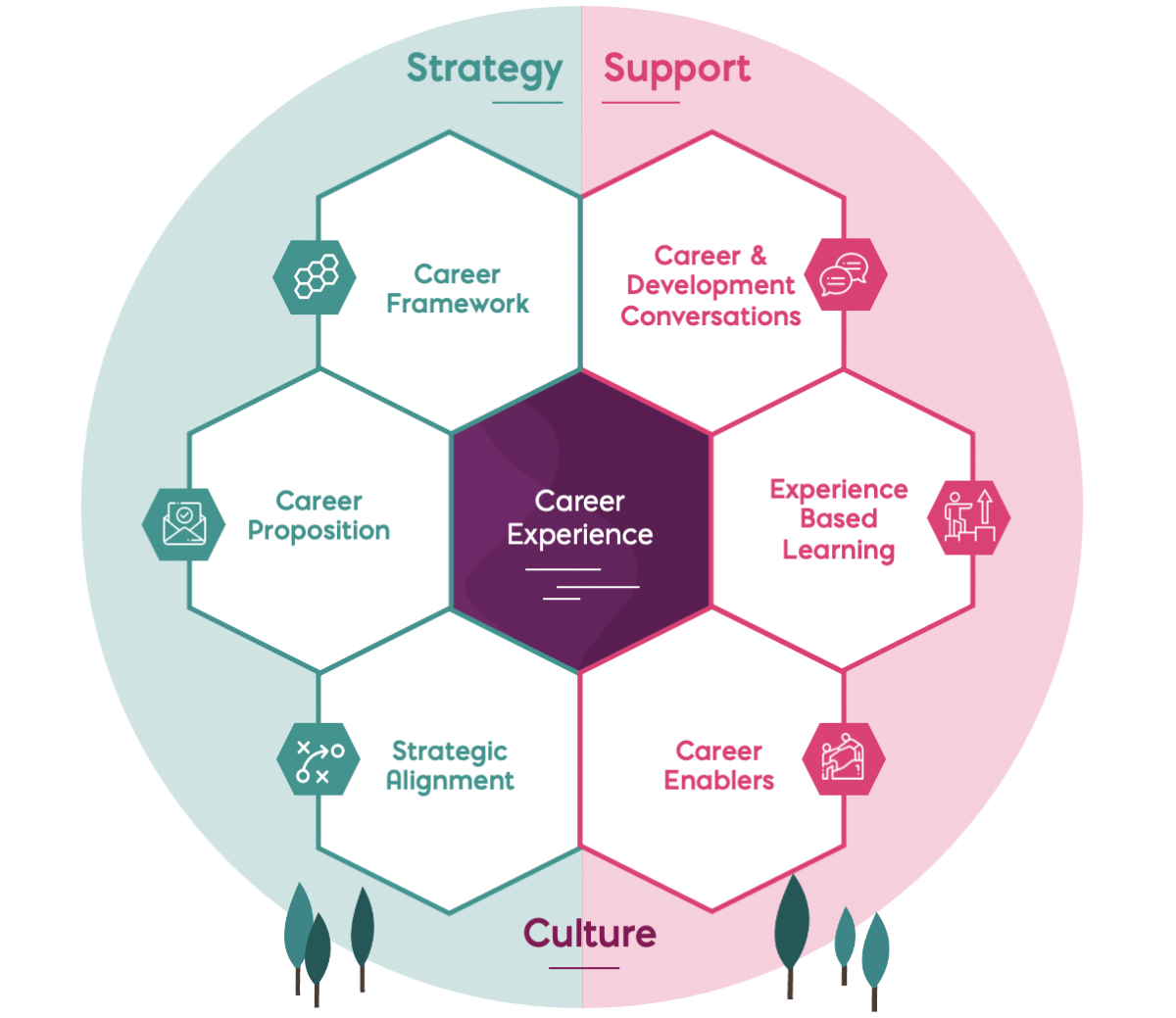Laura Walker, mid-life specialist, challenges organisations to recognise and support their largest untapped pool of talent.
Stories of mid-lifers retiring early or coasting into retirement from 45 are long gone. Most us will have 15, 20, or 25 years of working left. Globally, populations are aging faster than ever and people are working longer – by choice or necessity. Many countries have seen a sharp decline in the number of people (particularly women) retiring before 65 – largely triggered by the raising of the state pension ages in many developed countries. Interestingly, 25% of those who do retire later go on to unretire.
As the supply of younger workers is declining, mid-lifers (typically aged 45-60) are set to become an increasingly important talent pool for your organisation, yet most investment and focus is on younger workers. Many organisations admit they have never thought about focusing in an explicit way on the career development of this group. Why is this?
Neglected and surrounded by myths
According to a recent report by Workhuman,age discrimination is now the number 1 form of workplace discrimination – ahead of gender, race and sexual orientation. Prejudice shows up in many forms of course and is very hard to shift. We see it in the false assumptions we make about groups of people – myths we believe unquestioningly:
- Some believe that older workers are more likely to be off sick. In fact, older workers are half as likely to take a sick day compared to their younger counterparts.
- Many assume that older workers aren’t up to date with technology. In 2016, Cisco conducted a large study and found no real correlation between age and confidence using technology. Type of work and levels of employment are better predictors of confidence than age
- Older workers are thought to be less innovative and entrepreneurial – but most new businesses are established by people over 50. In the digital sector, 70% of start-ups founded by people over 50 lasted longer than 3 years – compared to 28% for those founded by younger people.
- Many assume that older workers are resistant to change, however, there is no evidence to suggest older workers are any less adaptable in their mindsets than their younger peers. According to BITC, 85% of employers say mid-lifers are open to and adapt well to change.
- According to Great Places to Work, people in their 40s are statistically the least satisfied overall. The picture changes significantly if people can stay in work beyond the age of 55. Mid-lifers can shift from among the least engaged to the most engaged.
But, if we were to single out this group for special treatment, would we be guilty of putting them in a box too? What can we learn from how we address other forms of discrimination?
Shifting needs and priorities
It can be argued that in mid-life, our needs and priorities shift. Most people put increasing emphasis on creating a better balance with the rest of their lives, more meaning in their work, the desire for a more conducive working atmosphere, and greater autonomy. The desire for meaningful work is important for all ages – but it increases steadily from age 35, peaking beyond 65. Some find meaning in the type of work they do, whilst others find meaning when their work contributes to an organisation’s mission that is fully aligned with their values.
Naturally, individual circumstances will make a difference to needs and priorities – but evidence suggests mid-life is a unique and challenging time which gives rise to potential for individuals and their employers.
A unique and challenging time
In mid-life, we are at a pivotal period in our lives. We straddle our own youth and old age. We support both older and younger generations in our families. We are positioned between younger and older workers in the workplace. Within ourselves, we are both declining and growing. For example, we can believe our health, work potential and youthful good looks are declining. On the other hand, we may believe our ability to make good decisions is growing and our autonomy is increasing, and we may be more receptive to re-invention.
The stakes are high, and so are the rewards. Evidence shows that choices made now can fundamentally affect health, wealth and happiness and even turn around earlier disadvantage.
Nurture this talent pool – the business case is compelling
- Productivity – the evidence that engaged workers improve business performance is well established – with productivity gains of 3.8% per annum. If older workers stay in a business, they can become the most engaged.
- Costs – can also be lower by avoiding recruitment costs, mistakes and with better ROI for learning spend as they typically stay longer.
- Opportunities – there are opportunities for businesses if their own employees and others remain economically active.
- Age – diverse teams are more creative and make better decisions.
- Risks – age is a protected characteristic. Older workers often have institutional memory that can be important to a business. Planned transitions reduce the risk of unplanned succession.
Lots of mid-lifers want to progress their careers in some way. Progression, of course, can mean very different things so it’s important to recognise this doesn’t necessarily mean promotion. However, the appetite for growth and job change is common for over 50s, with around half the workforce changing, particularly women. So, employers can build on this desire for change.
But some mid-lifers risk becoming less employable as they neglect their skills or fail to keep up with the latest developments. They may need encouragement to continue to invest in their own learning and growth. In The 100-year Life, it’s claimed that skills today only have a shelf life of 5 years – so the skills we have at 45 are not sufficient to take us to 65 and beyond.
How to unlock mid-life potential
1. Mid-life career reviews – have been introduced in several countries. People benefit from the opportunity to take stock, reflect on the future and put in place actions plans. Sometimes called a Midlife MOT, they typically focus on three aspects:
- Work and skills
- Wealth
- Wellbeing
Employees are provided with information and given tools to help consider their own position. Culturally, the acknowledgement that they still matter to the organisation also sends a strong message.
Others provide access to online career development courses such as Be Bold in your Career – which are scalable and give the employee the skills and motivation to take charge of this phase of their career.
2. Mid-lifers in your Career Strategy – the Career Innovation Company’s Career Strategy and Support model provides a coherent framework to identify actions to address your organisation’s future skill needs and priorities.

A few questions to consider as you target this talent pool:
- Have you looked closely at your demographic profile? Do you know the age distribution of your organisation? Where are the key risks and opportunities?
- Do your mid-lifers make the most of your L&D and Career Development support? Are they encouraged to upskill and be ready for future opportunities? Is more targeted support needed on these topics?
- Does your career proposition or EVP connect with all of your employees?
- Do you look at age as an aspect of unconscious bias and stereotyping that might impact on the career progression of older workers?
- Are you leveraging the complementary strengths of multi-generational teams?
- Are your policies on wellbeing, flexibility and carers sufficient for mid-life?
Attention, investment and activity is often given to younger workers at the early career stage. Yet most organisations contain an untapped talent pool, who – with a small shift in focus – can be engaged and supported to allow everybody to make the most of their potential.
Unlock mid-life potential in your organisation. Find out how the Be Bold in your Career course will empower people in their careers.
Laura Walker is a specialist in mid-life careers. After 25 years in Senior HR and Talent roles in respected businesses, she founded her own business in 2017. She is also an award-winning mid-life researcher and is writing a book.





